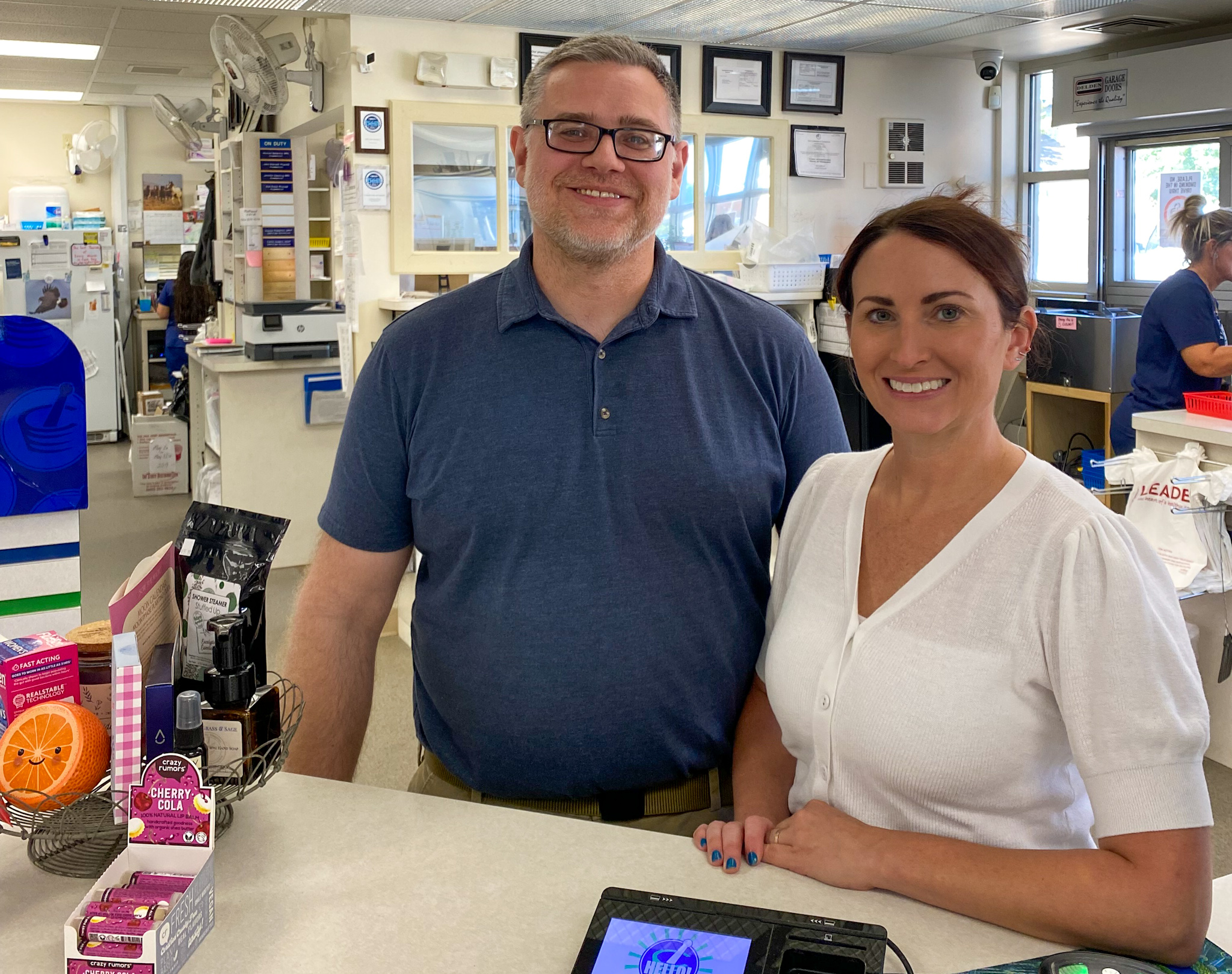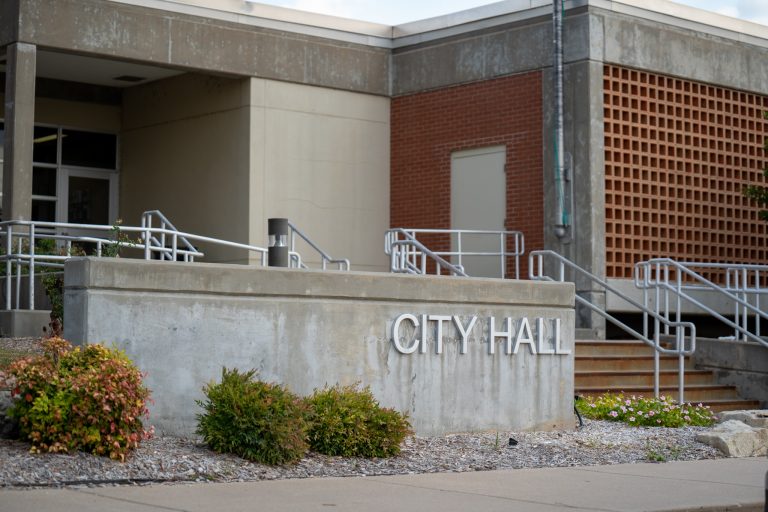Nikole Babb
nbabb@cherryroad.com
“This is not a question of greed or maximizing profits. It’s a question of continuing to keep our doors open.”
As many as 10 family-owned pharmacies faced closure each day around the United States of America in 2024. This isn’t due to low staffing, inflation or even a loss of customers. The answer is much more complicated than most think and is hugely due to Pharmacy Benefit Management, (PBM), companies being left completely unchecked.
Unfortunately, local pharmacies are feeling that pressure right here in Butler County. El Dorado TrueCare Pharmacy announced in September that they were shortening their weekend hours in an effort to cut operational costs. On January 2 of this year the team announced they would have to stop offering certain insurance plans completely due to the low reimbursement rate, sometimes leaving them in the negative and just a few dollars in profit.
“This is not a question of greed or maximizing profits,” said El Dorado TrueCare as they announced insurance cuts on Facebook. “It’s a question of continuing to keep our doors open.”
Cooper Drug Store in Augusta has also had to face closing Saturday operations completely and reducing weekday hours to save on operating costs.
“For the most part our community has accepted it, but it still bothers me when that one patient comes in and says, ‘I really wish you were still open on Saturdays’,” said Brett Kappelmann, Owner of Cooper Drug Store in an interview with the Times-Gazette. “I do too, we’re just trying to make the right decisions based on the economic climate we’re in right now.”
To understand how PBMs affect locally owned stores, it’s important to know what they are. PBMs are third-party companies that manage prescription drug benefits for health plans, employers, and Medicare. Picture them as the middleman between drug manufacturers, pharmacies and health insurance companies. They earn their revenue by charging insurers administrative fees, acquiring rebates from drug manufacturers, and keeping some payments from drug pharmacies.
According to fiercehealthcare.com, a healthcare news source, four of the largest PBMs in America are CVS Caremark, Cigna Express Scripts, Prime Therapeutics and UnitedHealth Group’s Optum RX. Collectively, they own 70% of the national market.
When PBMs were created, they were meant to control the prices of prescription drugs through negotiation and buying power. Many of the discounts and lower prices come to them through rebates given to them by drug companies. They also determine which drugs are covered by which health plans and at what cost to the pharmacies and patients receiving the drugs. Though they were created out of good intent, many pharmacies say that they now insert themselves in places they shouldn’t be and have taken over the market by owning their own pharmacies and hiking up prices for competing pharmacies.
“If you ask them, (a PBM), they would say that they pass on all of the rebates to their clients who are actually paying the bills,” said Jake Milbradt, El Dorado TrueCare Pharmacist in an interview with the Times-Gazette. “But they have been sued over and over again and numerous studies have shown that they do not pass on all of that amount and rebate.”
“Because they retain part of that rebate, they actually want the drugs to be a higher price,” said Mildbradt. “So, everyone’s relying on these PBMs to lower prescription prices and to control the prices, but they have a financial incentive to raise the prices. Because they’re going to get a bigger rebate and still bill the client that higher price.”
Another way PBMs operate unethically is only offering the name brand drug on health insurance coverage when there is a generic brand or off-brand drug for a cheaper price. At some times the name brand may have a rebate and when the rebate is taken away for any reason, the PBM will no longer cover the drug any longer. Other issues at hand include artificially inflating prescription drug prices, which has been found multiple times over the years.
For example, the Federal Trade Commission, (FTC), filed suit to sue several PBMs in September 2024 for this exact complaint. The complaint included three of the top four PBM mentioned previously in this article; Caremark Rx, Express Scripts (ESI), and OptumRx—and their affiliated group purchasing organizations, for artificially inflating the price of insulin in order to boost their profits regardless of vulnerable patient access.
“Millions of Americans with diabetes need insulin to survive, yet for many of these vulnerable patients, their insulin drug costs have skyrocketed over the past decade thanks in part to powerful PBMs and their greed,” said Rahul Rao, Deputy Director of the FTC’s Bureau of Competition in a statement on the case. “Caremark, ESI, and Optum—as medication gatekeepers—have extracted millions of dollars off the backs of patients who need life-saving medications. The FTC’s administrative action seeks to put an end to the Big Three PBMs’ exploitative conduct and marks an important step in fixing a broken system—a fix that could ripple beyond the insulin market and restore healthy competition to drive down drug prices for consumers.”
The FTC noted that in 1999, the list price for Humalog – a common brand-name insulin medication – was just $21 and by 2017 the drug was listed at $274, which the FTC alleges is due to PBM rebate chasing. The price increase was calculated at 1,200% over 18 years. The case is scheduled to continue throughout 2025 with an evidentiary scheduled in August.
While this all may seem, look and appear as yet another big mess that could be described as another symptom of “late-stage Capitalism”, there is a way to slowly choke back PBM power. That’s through the best way we know; reform through the passing of legislation. While there are no current bills being pushed through congress, there could be more coming this year. All moving bills were squashed when the federal bill was passed to keep the government from shutting down.
“It has purposely been made complicated so that it’s hard to regulate,” said Milbradt.
Unfortunately, that bill passed by dropping many important measures that included forcing PBMs to pass down 100% of rebate to sponsors of prescription drug plans in Medicare and other group health care. It also prohibited PBMs from billing Medicaid states and plans for more than what they reimburse pharmacies as well as providing prescription drug spending to federal regulators and clients.
“I feel like this is a national healthcare emergency and I feel like it’s being ignored,” said Milbradt.
Without PBM reform, the future could be bleak for family-owned pharmacies such as Cooper Drug Store and El Dorado TrueCare Pharmacy. While bigger competitors like Walgreens are seeing a staffing shortage due to employee lay-offs to save costs, that isn’t an option for the locals. The staffing shortage is a very dangerous choice to make. It wears down the remaining employees who have just seconds to make decisions while the phone constantly rings, and important medications need to be filled accurately. By eliminating staff and their time, dangerous accidents can happen like misfilling a prescription or not being able to fill one in time.
“All pharmacies need protection to ensure that we can continue to be the pharmacy that our patients want to use,” said Kappelmann. “In the end, and I know I can speak for Jake too; I absolutely love what I do, and I love running a community pharmacy, I love the relationships with our patients and our employees.”
Both El Dorado TrueCare and Cooper Drug have voiced they won’t cut staff and don’t want to. They say they will make common sense measures to cut costs before cutting staff, but times are only getting tougher at this point.
“That is what’s going to keep a lot of pharmacies adapting to the changes,” said Kappelmann. “I just hope the right people in the legislature will recognize that there is a real threat against our industry right now and hopefully some of these bills can keep gathering attention and support in the legislature.”



